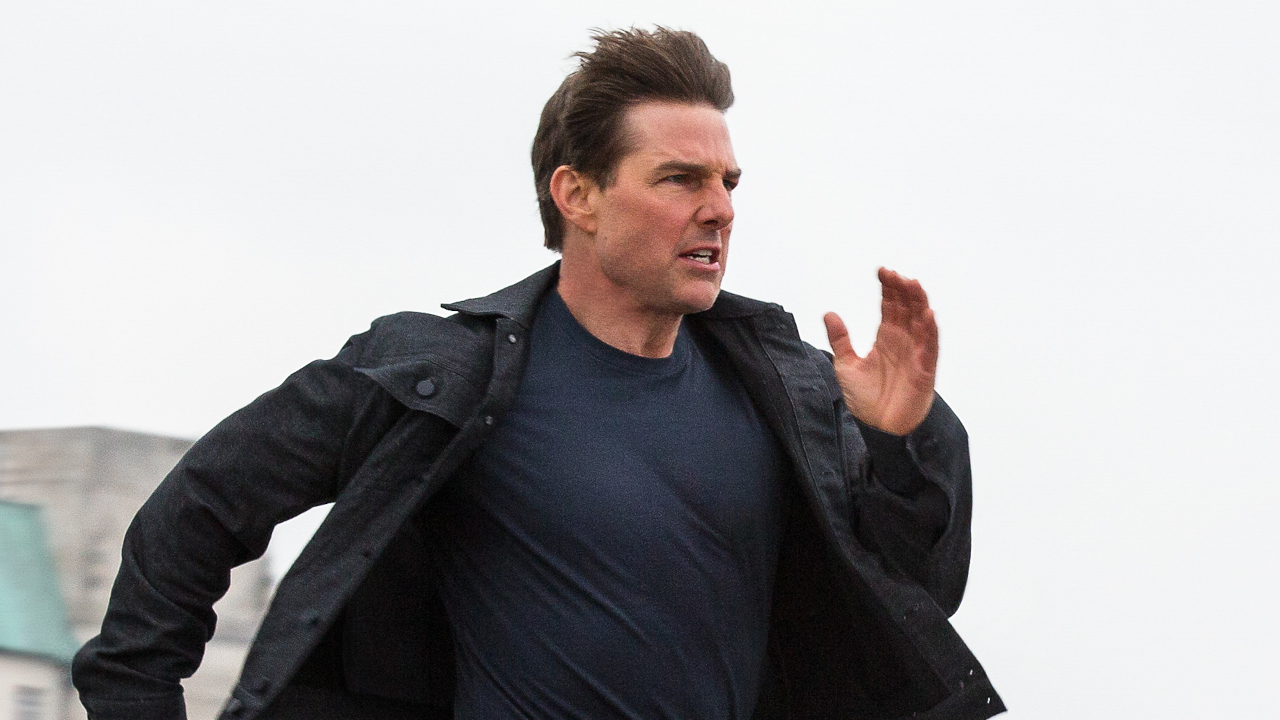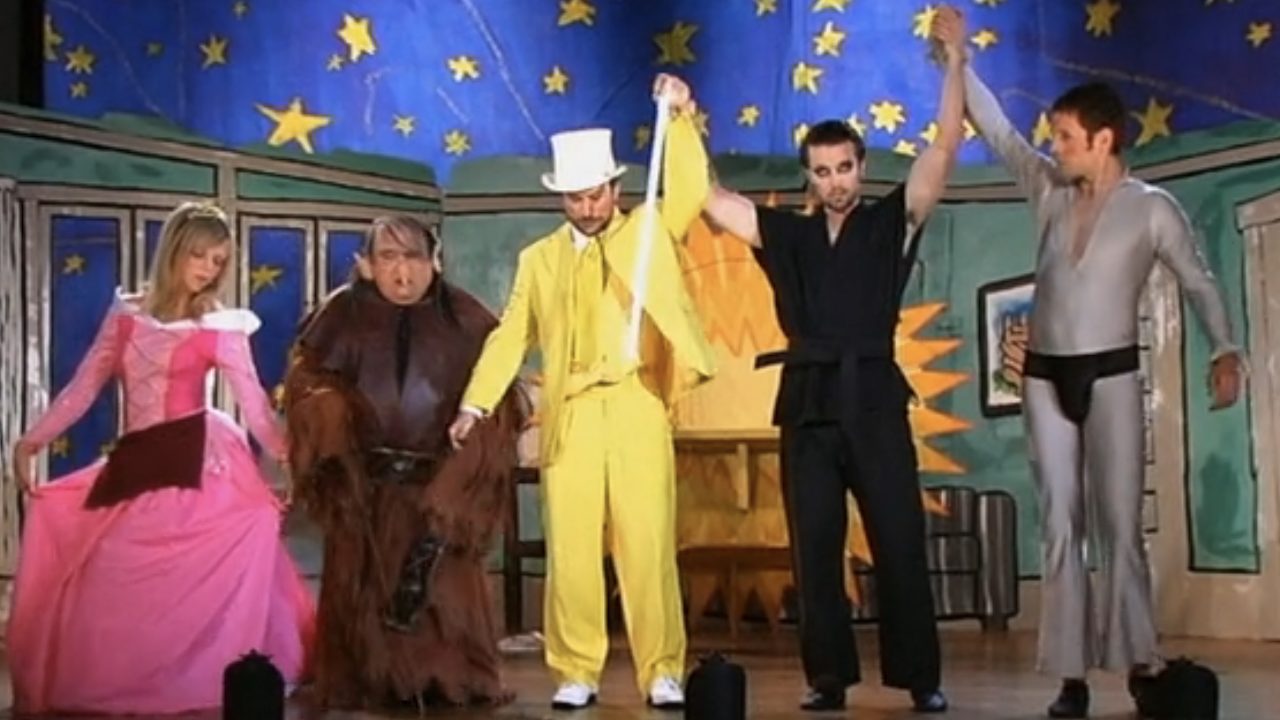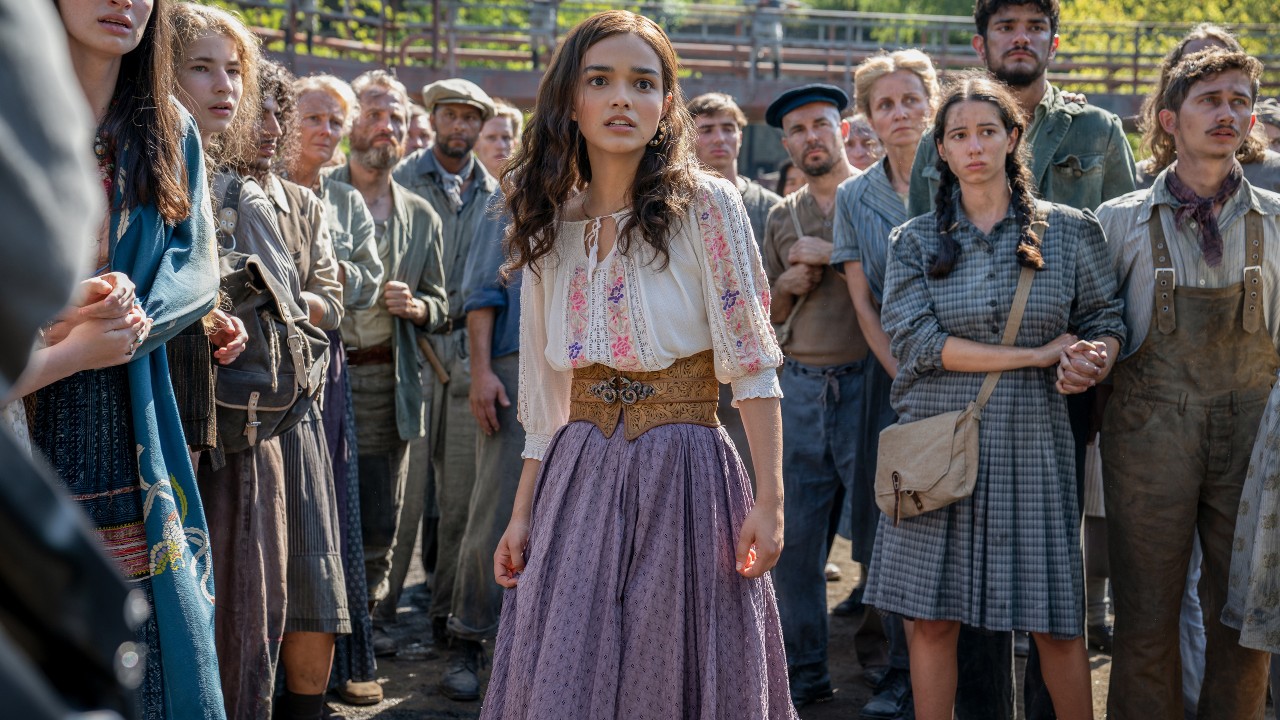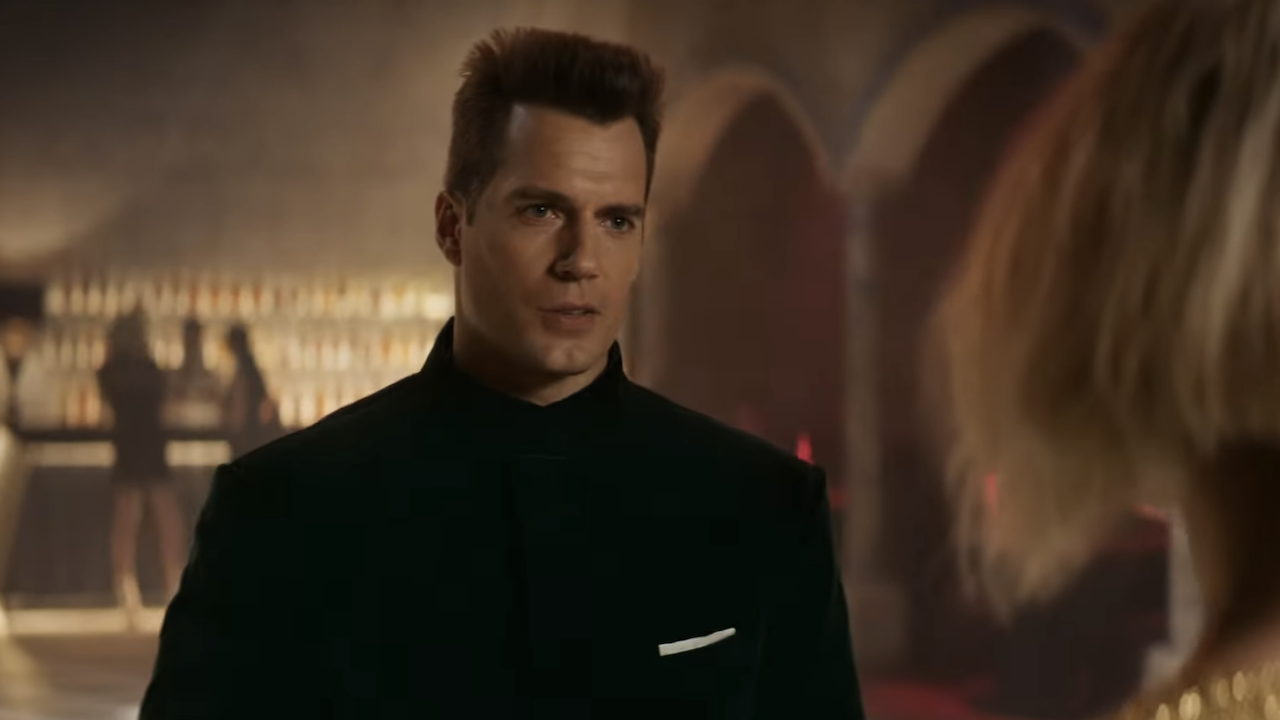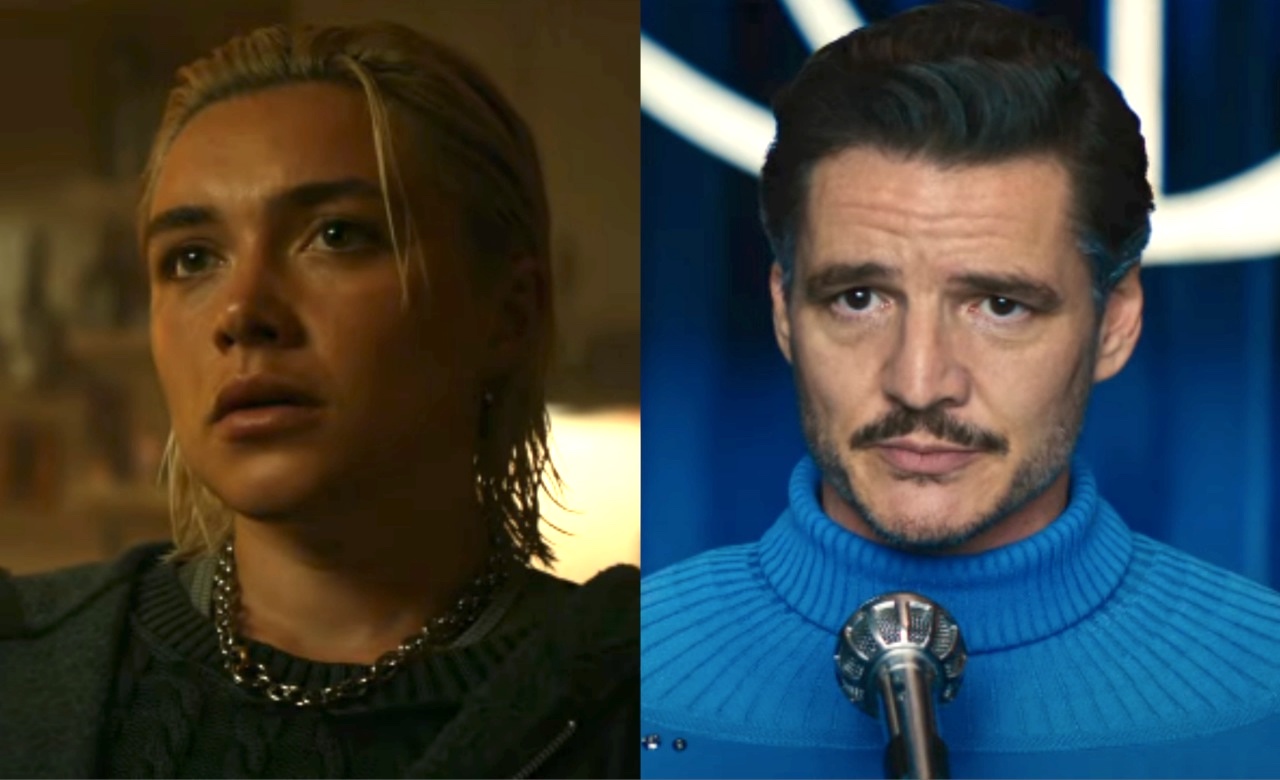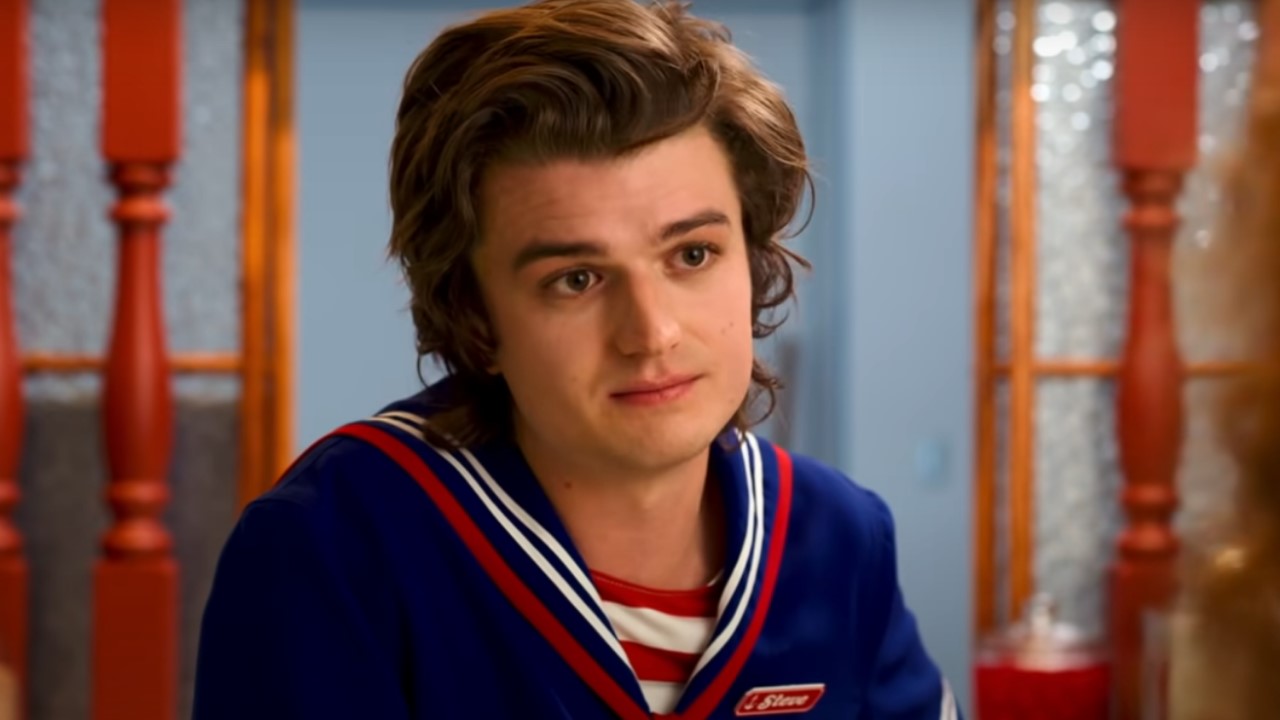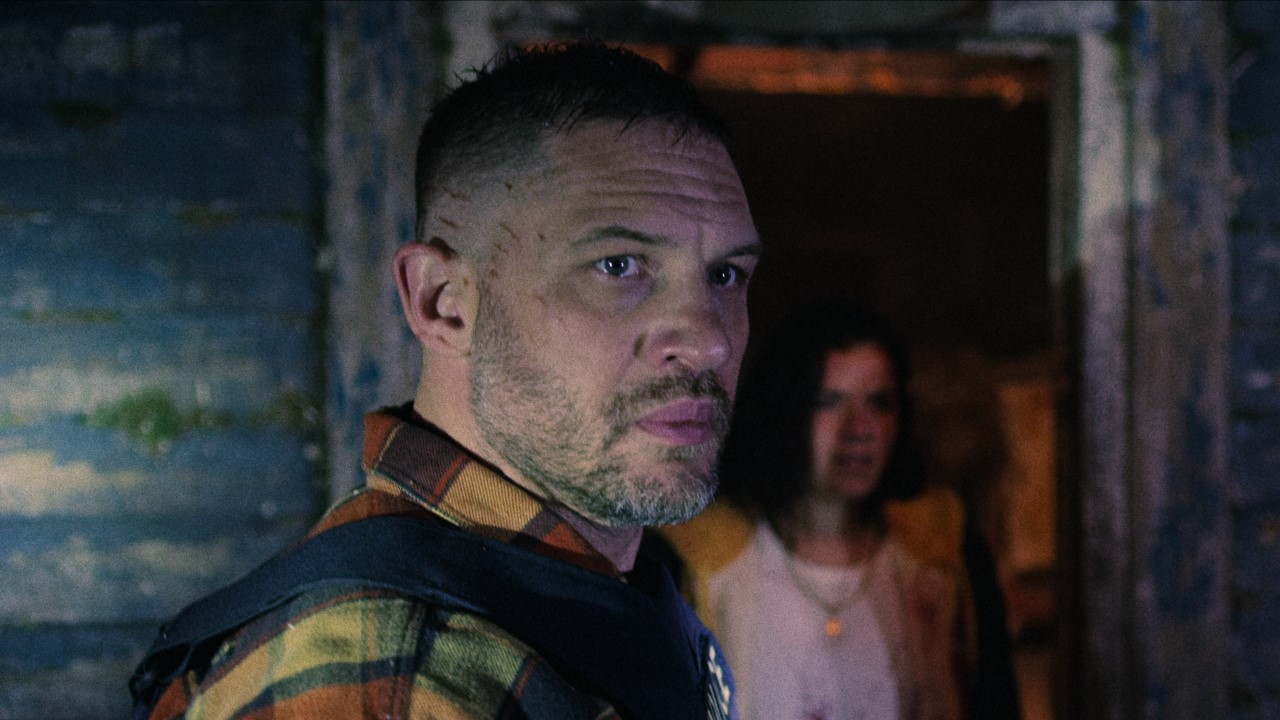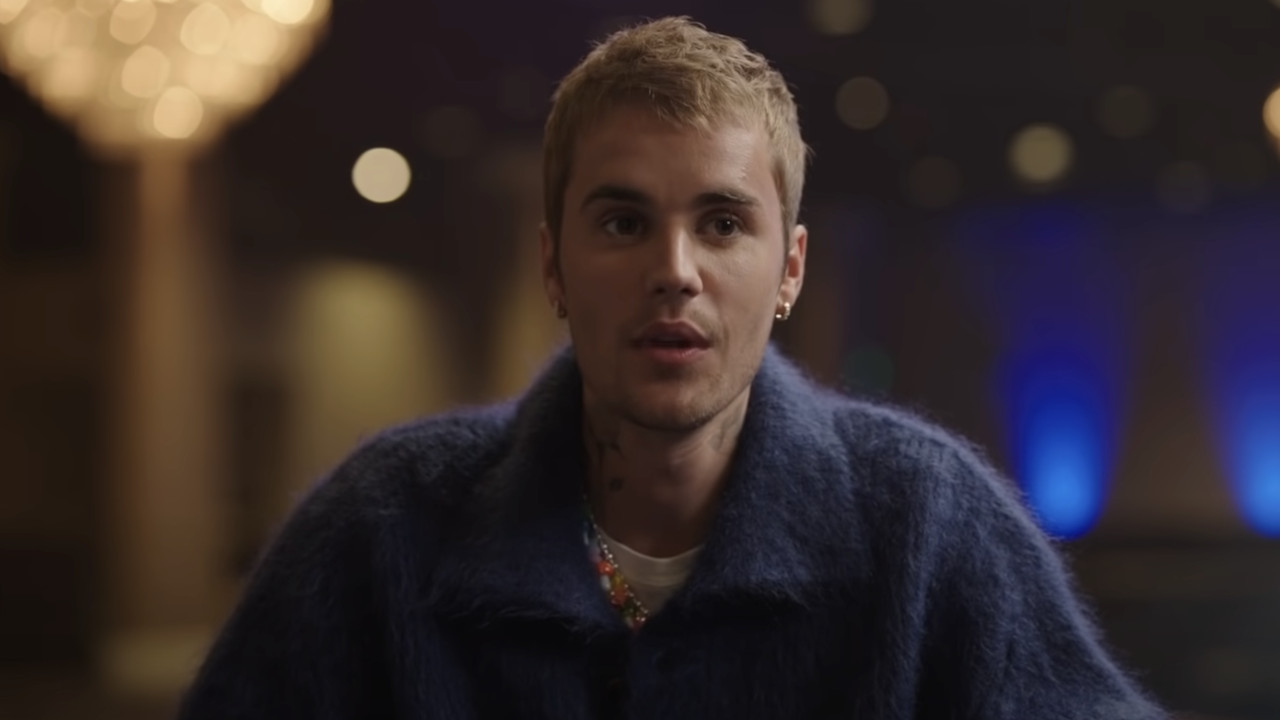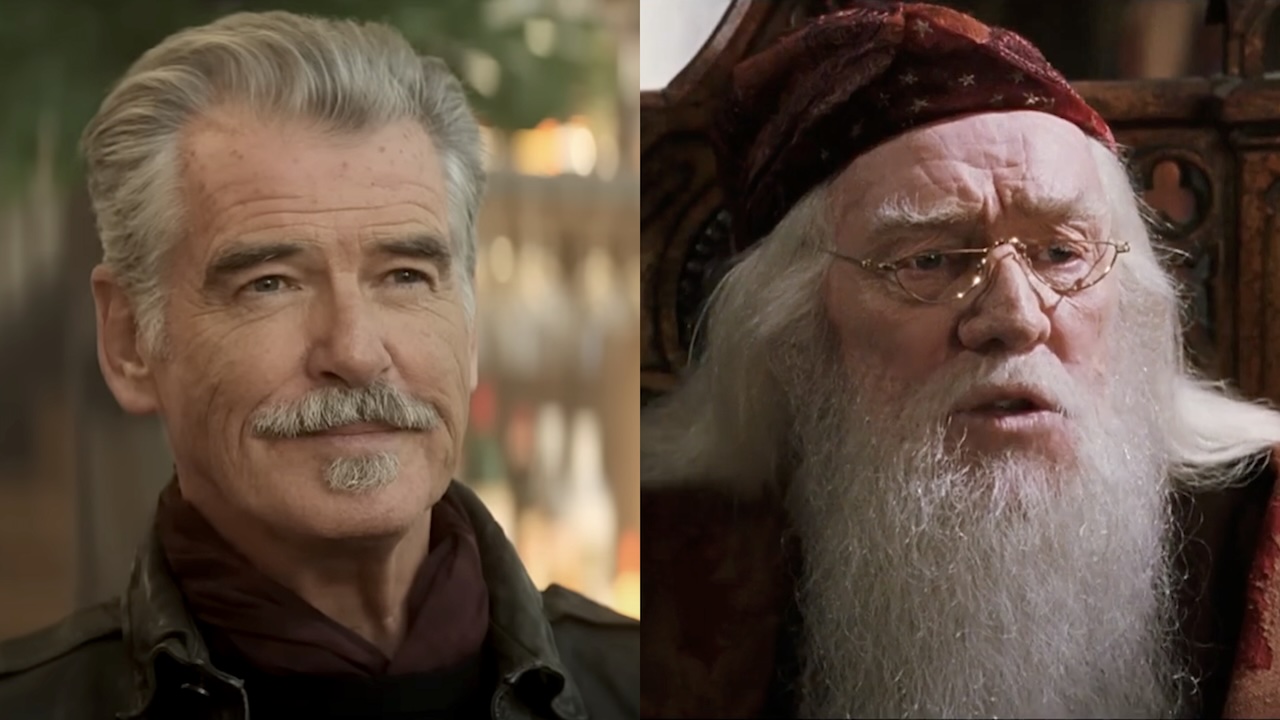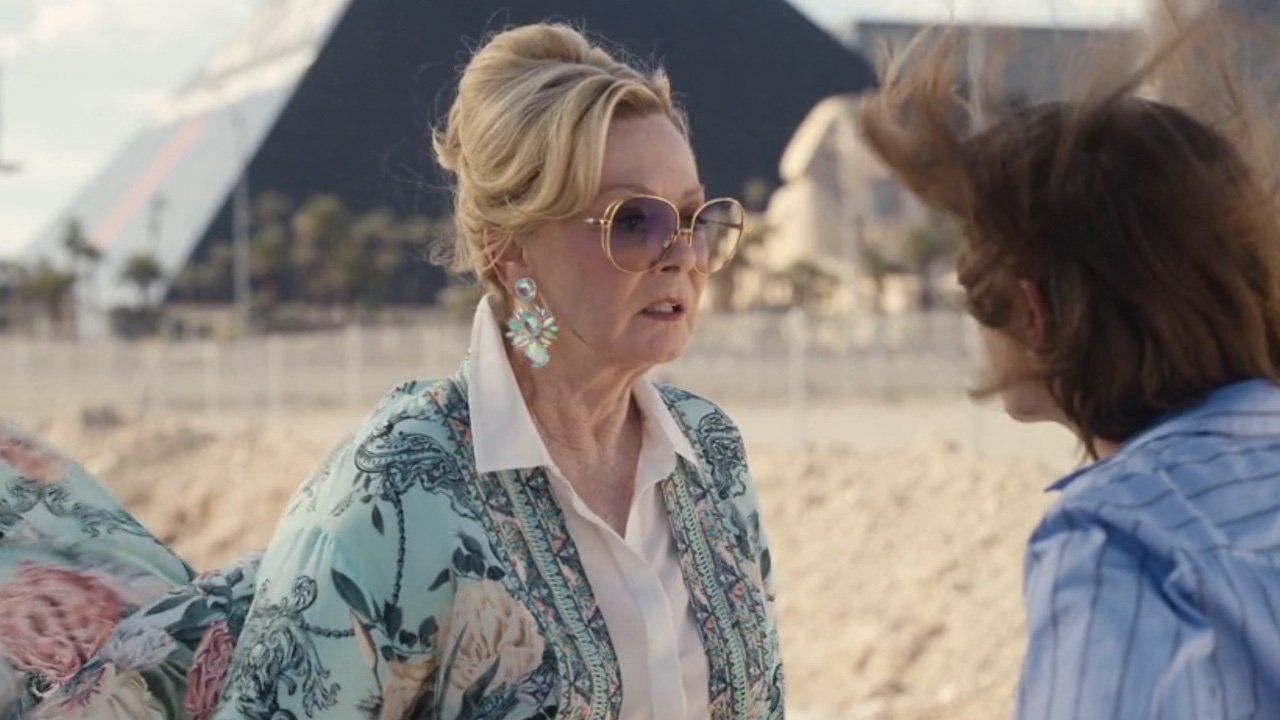Interview: The Perfect Game's Jake T. Austin And Cheech Marin
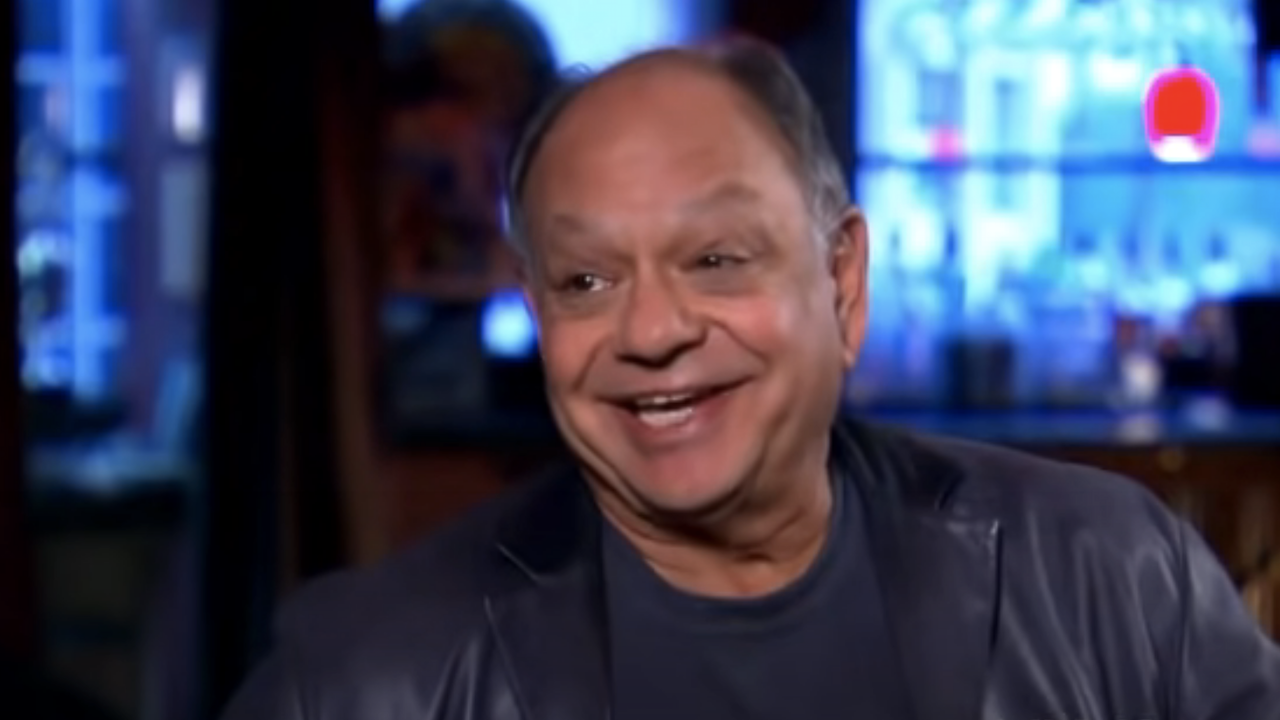
William Dear’s The Perfect Games may be based on the perfect true story, but the production itself was far from flawless. There were a number of snags in the road to the little league World Series for the Monterrey Industrials back in 1957 and Cheech Marin and Jake T. Austin experienced a similar ride packed with troubles in attempt to complete this film.
Austin stars as Angel Macias, the Industrials’ golden boy and the player who pitches the perfect game transforming the mostly unlikely contenders into the first non-American team to win the little league World Series. The Industrials’ firepower may have come from Angel’s arm, but it’s Padre Estaban’s (Marin) spiritual guidance that encouraged them to be respectful, hard workers and gracious winners. Between their talent and genuine appreciation for the opportunity to just play some baseball, the Monterrey Industrials became a little league legend.
Marin and Austin were both on hand to talk anything and everything baseball. The duo revels in the fact that the cast and crew of The Perfect Game achieved the impossible and have finally arrived at opening weekend. They also recollect their fondest baseball moments and offer a look into the future to discuss their upcoming projects.
What’s your most memorable baseball experience?
Marin: I was in little league when this happened. I was exactly the same age as these kids. I played in little league and so I knew the story very well and I identified with it a lot and at the same time, I was on the all-star team in my little league and getting that new uniform. The scene where they get their new uniforms, when we shot that scene I went up when they were setting it out I picked up a uniform and smelled it because it smelled just like the uniforms of the day.
Austin: Filming in San Bernardino, playing on that huge prestigious field that I know the little league World Series has been played on was just so cool. You watch it on TV all the time and to finally be on that field and to be pitching in front of that many people was the coolest experience for me.
How was it working with William Dear?
CINEMABLEND NEWSLETTER
Your Daily Blend of Entertainment News
Marin: William saved this movie. This movie has a long, tortuous history and when I was watching the screening the other day in LA, I just realized, boy, this movie really is William. It’s his movie. He came in and rescued it from where it was. We shot this movie twice from the beginning to the end and when he came in it had a focus, it had a purpose, you felt safer because he knew what he was doing and he gave it the rhythm. And he understood actors and he understood how to get the producers and the writers out of the way, [Laughs] which was very important to this project because we had revolving cast of producers.
What were the differences when you shot it the first and the second time? Was the cast the same?
Marin: Did you all come back the second time?
Austin: I think we did, minus one or two that had sort of smaller parts, but the majority was all of us.
Marin: The boys and I came back, everybody else changed.
What was it like to go through the process a second time?
Marin: Hard. This movie was a corpse that was left in the middle of the street for dead I don’t know how many times. I can’t tell you. We shot for four weeks in Monterrey?
Austin: Yeah, we shot for like a month, a month and a half.
Marin: Month in Monterrey and the money disappeared and it wasn’t until eight months later that we started up again with new – and the producers would disappear every once in a while and new producers would come in and there was always some story with them and then - we shot the film three years ago, so it’s like, every six months I would get a call from some new set of producers, ‘Okay, it’s going to come out …’ and then nothing. So every time they called and I’d go, ‘Oh yeah, okay. Call me when we’re going to the premiere.’
Did you get a chance to meet the surviving members of the team?
Austin: It was really really strange for me to meet the real Angel. You keep forgetting while you’re filming that it’s a true story because you’re making a movie. They flew Angel down for the first time and they said, ‘Jake, this is the real Angel.’ It was weird because he’s such a normal guy. He doesn’t speak too much English so I had to learn a little more Spanish to communicate with him. He’d be walking down the street and wouldn’t really stick out. He’s a very humble person and despite all the things that he’s accomplished and how incredible a life he’s led, he’s just a regular guy and it’s just a really weird experience meeting someone that you’re portraying.
Cheech, what was your initial reaction when you were offered the role to play a priest? Are there any actual clergyman that inspired you when portraying this character?
Marin: There was actually because I grew up Catholic and I was an altar boy and a choir member and I was almost a priest until reason took a hold of me. I based this character on other Mexican priests that I had known because I used to travel to Mexico as a kid all the time with my parents. They were very different from American priests. Their very nonauthoritative. They’re very avuncular and very supportive. This is a very very different kind of priest so that’s kind of what I wanted to do. So when they asked me to do it I go, ‘I can do this in my sleep.’ I know these guys really really well and I was a baseball player. The story was really close to me.
You considered being a priest? What was the turning point with that?
Marin: I met girls. I started discovering girls [Laughs]. I don’t think so. No man. No girls? Priest? No, no.
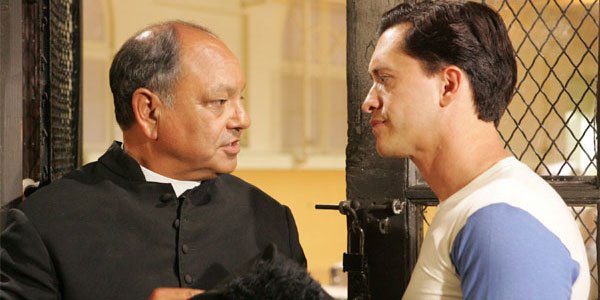
How was it working with Clifton?
Austin: The conversations I can have with Clifton now and the way I can hang out with him now is so different than back then. He’s such a really good actor, he’s sort of method. But at the time, he’s so professional and all that, but at the time he’s just like one of the kids. Clifton’s the guy that we’d all go in and wreck his trailer and run away and then he’ll come back in and Clifton’s the guy we’d like stick stuff on his back and he wouldn’t know it, we’d piss him off. But he’s just a normal down-to-earth guy who just happens to be a really good actor.
Sounds like there was a lot of camaraderie and some foolishness on set.
Austin: It was predominantly a boy’s set. It was great. We had some girls, Patricia [Manterola], and we had a girl that was our age who we all tried to hit on. One of the assistants, the script supervisors, was a woman and we were all like in love with her. We all thought she beautiful so all the boys would be trying to go over to her. But it was a fun set.
Marin: I just wanted to get out of that cassock. It was like 107 out there, I’m dressed from head to toe in black.
Austin: And that hat!
Marin: The hat actually saved me. It was hot and it was wool, you know? I was like, ‘Oh, god and now they’re going to go for the big black cassock.’ They didn’t have any kind of like casual Fridays there.
Did you get a chance to play some ball there yourself?
Marin: Yeah, we’re in Monterrey, every time I had a break, especially the kids who didn’t really know how to play ball. I would play pepper with them.
Austin: That’s what we did for fun. We ran around the desert breaking stuff and we played catch, that was it. That’s all we did and when we got back to the hotel, it was like the same stuff. We’d just hang out.
Marin: Some of the kids never played baseball in their lives. Who was that one kid?
Austin: Carlos Padilla.
Marin: Never picked up a baseball in his life and it looked like he never did. [Laughs]
Austin: That’s why if you watch the movie, they’ll cheat out scenes where he’s either about to throw or about to bat, they’ll cut to an establishing or wide shot and little tricks that they do.
Marin: That’s what I think Bill Dear did great on, was covering - the action, the actual playing of baseball so the action went through rather than hang up on well, can these kids actually play ball? You saw the ends of the plays so it doesn’t take you out of the movie that the kids were not professional ballplayers.
Austin: Bill was a saint, to put up with. He didn’t really show any stress. He always managed to laugh and find the humor in things and he was literally one of the kids. We’ll be doing interviews with roundtables, stuff like this, and while I’m talking he’ll be whispering stuff in my ear trying to make me laugh and throw me off. Bill is literally one of the kids. He’s like the cool uncle you wish you had.
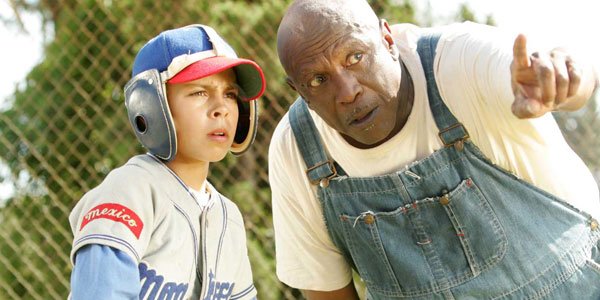
What are your favorite pro baseball teams? Have you had any memorable experience with them?
Marin: I’m a Dodger fan. I grew up in LA and I watched the Dodgers when they were in Brooklyn. They were my team even when they were in Brooklyn and they had the first black guy so that was the coolest. They had Jackie Robinson. They had all my favorite players. Maury Wills, Charlie Neal, Peewee Reese and all those guys. Over the years I’ve gotten to know different managers. I knew Walter Alston when he was the manager and now I know Joe Torre. He’s a great guy and I got to throw out the first pitch a couple of times. Last year I threw out the first pitch on Manny Ramirez bobble head day and it was cool because he was coming off of the suspension and it was one his first times, I think it was the day he came back, they were losing to Cincinnati in the top of the 8th and he came in as a pinch hitter because he had an injury too and knocked it almost out of the stadium man! I’ve been to a lot of Dodger games, but I’ve never heard the stadium rock like that.
Austin: I’m a huge, diehard Yankees fan, pretty much my whole life and I did a film with Joe Torre, I was like 9. He had a voice in an animated film I did and so we got to talking and he invited me one day to come down to the field for batting practice and stayed for the game afterwards. So I went down and ended up sitting in the dugout for a majority of the game. I was talking to the players and hanging out and I was 9 and I mean this is something I’ll remember for life. Literally, Derek Jeter, he had just come off from third base and Derek Jeter’s the King. If you live in New York, Derek Jeter’s the man and he comes over, he has his bat and he’s like, ‘Here man’ and just tosses me his bat, game used, beautiful bat, pine tar still on it and I almost cried. And to him it’s just a bat; to me that’s my life.
Still have that bat?
Austin: Sitting in my room! I’m pretty sure it still has some pine tar residue right on it.
So, it sounds like it was an easy, laidback cast and crew, but you guys had a lot to do and not much time to do it.
Austin: We shot the first version and we had some more time, like four, four and half weeks and the second version we shot in 20-something days so the schedule was backbreaking. Hours were ridiculous, but we didn’t even care, we just wanted the movie to get done. We loved the story so much that we were dedicated to doing anything; make water part to get this movie finished. I was working on a show and the film at the same time, I was going from this set to that set. I had so much going on, but I loved the film so much I just wanted to make it work and I’m happy it paid off.
Cheech, you’ve worked with Robert Rodriguez a number of times. How was it working with him on Machete?
Marin: It was great. It was a phony trailer in Grindhouse and it was the trailer that the fan base demanded be made into the movie, they liked it so much. So there were rumblings and rumblings and finally we’re making that movie. I’m like, ‘Oh, really?’ It was hilarious because it was meant to be a joke because the movie didn’t exist, a movie starring Danny Trejo as the romantic lead. [Laughs] Good luck dude. But he was cool. This is my eighth Robert Rodriguez movie. I love working with him. I like this particular movie because, except for the Spy Kids movie where I don’t get killed, I get killed every other movie. I kept telling him, I said, ‘You know, Robert, as soon as you kill me, your movie’s over, so you might want to kill me later.’ And so this one they killed me later! [Laughs] I get crucified in this movie.
Jake, what do you have coming up?
Austin: I’m doing a film with – an animated movie called Rio, Carlos Saldanha directing. I’m starting up a fourth season of Wizards [of Waverly Place] again and then I’m writing a film. Hopefully it’ll get made in the fall.
In Rio you play a character named Fernando. Can you tell us a little about him?
Austin: Fernando, he steals the bird, the bird’s voiced by Jesse Eisenberg, and it’s one of the rarest birds still alive and it’s living in Minnesota and Fernando is instructed by his boss, he’s sort of in a gang, to steal the bird. So he steals the bird and they’re getting ready to sell it and so that’s they role he sort of plays. I don’t really want to give away too much.
Staff Writer for CinemaBlend.

